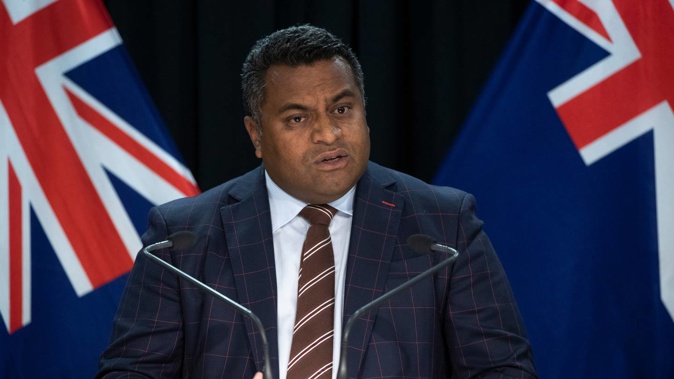
Electoral law specialist Andrew Geddis says current political donations rules do work if they are adhered to, but changes ahead of the next election could help restore public faith after a series of fraud investigations and charges.
Justice Minister Kris Faafoi has announced the Government intends to review and change donations rules ahead of the 2023 election as part of a longer-term review of electoral law changes.
There have been calls for reform of donations rules since Serious Fraud Office investigations into donations resulted in charges being laid against people over donations to National, Labour, and the NZ First Foundation. Donations to the Māori Party are also being investigated.
Geddis said he could see why the Government wanted a fix to the donations rules before the next election.
"You've got every party but Act and the Greens under some sort of criminal investigation, so it probably is important to do something before the next election to make sure the regime is as good as it can be."
Geddis said if the current rules around transparency were adhered to they were fine.
However, changes could include lowering the current $15,000 disclosure threshold for party donations, and aligning it more closely to the $1,500 disclosure limit for electorate candidates.
Another issue that needed addressing was the Electoral Commission had no enforcement powers to check the accuracy of donations returns. Often problems were only discovered if somebody reported it.
Faafoi said he hoped to be able to move on donations laws ahead of the next election, and was hoping to get broad political agreement for any changes.
The Government also intended to allow Māori to move between the Māori and general rolls more easily, rather than only each five to six years. It is a measure the Green Party and Māori Party have called for.
The Green Party electoral reform spokeswoman Golriz Ghahraman supported changing the donations rules before 2023, including "limits on big money donations".
However, Act Party leader David Seymour said the current rules were working: and charges laid for alleged breaches of those rules were evidence of that.
"That's why nearly every other party except Act is before the courts – because the law works."
National Party leader Judith Collins also said she believed the rules were already clear.
"There's nothing wrong with the rules. I think the problem is, as we've seen from some of the prosecutions that have been taking place, that not everybody has been following those rules."
Faafoi has proposed an independent panel look at measures such as a four-year term of Parliament, the voting age, and financing of political parties, including whether they should be state-funded.
It will also look at the five per cent threshold for parties to get into Parliament, and the coat-tailing provision that allows an MP who wins an electorate seat to bring in other MPs on the list, even if the MP's party falls short of five per cent.
Under the Electoral Act, changing the term of Parliament, the voting age, or the MMP voting system require either a public referendum or for at least 75 per cent of Parliament to support it.
Ghahraman said it was critical the review did not suffer the same fate as earlier reviews of the MMP rules and end up thwarted by political disagreements before any public referendum.
There is fairly wide political support for a change to a four-year term: Prime Minister Jacinda Ardern said she supported it, and Collins said she also saw merit in it.
Seymour has also advocated for a four-year term, but with the added check of putting Opposition parties in charge of select committees. However, he was less keen on dropping the coat-tailing rule, which Act has benefited from in the past.
Neither Collins nor Seymour favoured a change in the voting age.
However, Collins said such issues should be for the public to decide on in a referendum rather than politicians.
"Elections belong to the people, they don't belong to MPs. I personally believe that a four year term would be more useful, but it is absolutely up to the people."
Faafoi said the review panel would report back by the end of 2023. It was likely any major changes would go to a referendum - likely in the 2026 election - but that could depend on the recommendations.
The question around state funding of political parties and candidates could be politically contentious.
The Green Party has long called for state funding as a way to limit or end donations, while Act and National have opposed it.
Take your Radio, Podcasts and Music with you









